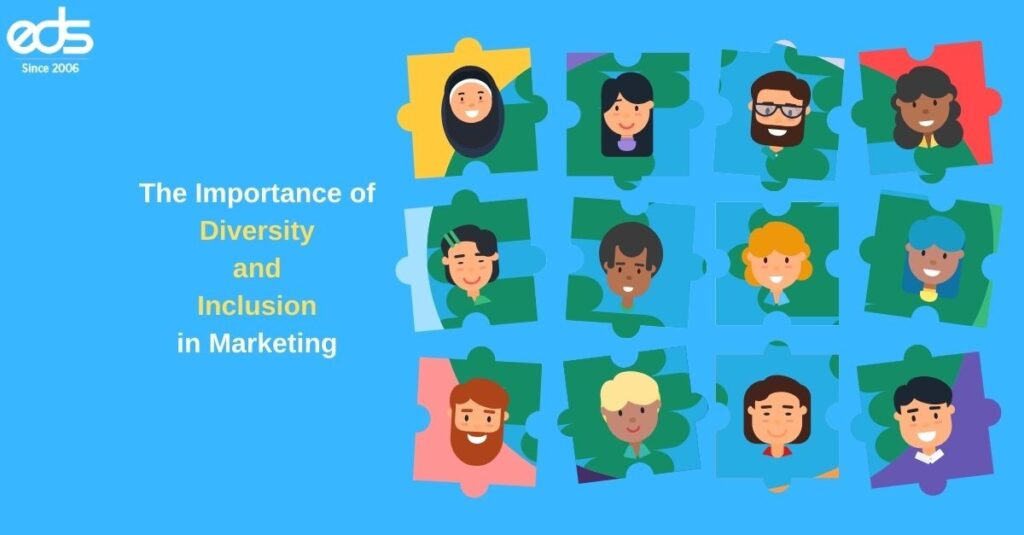In the dynamic landscape of contemporary marketing, promoting brand image extends beyond mere advertising—it encompasses engaging with consumers as distinct individuals, transcending barriers of ethnicity, gender, physical abilities, socio-economic backgrounds, and more.
However, this doesn’t imply catering to every conceivable demographic. Rather, it involves recognizing which groups are naturally drawn to your brand and ensuring authentic connections with them on a profound and personalized level.
Understanding Inclusive and Diversity Marketing
In essence, inclusive and diversity marketing entails crafting marketing initiatives that resonate with individuals from diverse backgrounds and cultures. It involves creating content that mirrors the rich tapestry of communities brands seek to engage with.
These campaigns may challenge norms and stereotypes or elevate underrepresented voices, aiming to inspire positive social change. Effective inclusive ads spotlight groups or individuals who are often overlooked or marginalized, such as the community, people of color, individuals with disabilities, and those from various age groups and religious affiliations.
Developing compelling and inclusive campaigns demands meticulous planning, creativity, and a commitment to thinking beyond conventional boundaries.
Statistics Underpinning Inclusive Marketing
The prevalence of inclusive marketing in 2024 is a testament to its significance in today’s marketing landscape. Consumers increasingly favor inclusive campaigns for their reflection of the real world, embracing diversity over outdated ideals of perfection.
Several statistics reinforce the importance of inclusivity in marketing:
- 61% of audiences deem diversity in advertising significant.
- 93% of marketers consider inclusive marketing crucial for its business potential.
- Progressive ads are 25% more effective.
- Brands with high diversity scores witness a 83% increase in consumer preference.
- 38% of consumers are more likely to trust brands demonstrating diversity in their ads.
- 71% of LGBTQ+ consumers are inclined to engage with ads reflecting their sexual orientation authentically.
- 82% of consumers perceive marketing efforts supporting the LGBTQ+ community as reflective of a brand valuing all forms of diversity.
- 69% of Black consumers exhibit a preference for brands positively representing their race/ethnicity.
These statistics underscore the shifting demographics and consumer preferences, highlighting the imperative for inclusive marketing strategies.
Benefits of Inclusion and Diversity in Marketing Campaigns
Embracing diversity in marketing yields numerous advantages for brands:
- Reach a Diverse Audience: Inclusive marketing enables brands to connect with a broader spectrum of consumers, fostering inclusivity and expanding their customer base.
- Foster Brand Affinity: Brands that champion diversity resonate deeply with consumers, enhancing brand loyalty and affinity.
- Deepen Audience Engagement: By crafting campaigns that resonate with diverse demographics, brands forge deeper connections with their audience, fostering engagement and loyalty.
- Drive Social Impact: Inclusive ads promote acceptance and equality, fostering a culture of respect and understanding while driving positive societal change.
EDS’s Approach to Inclusive Marketing
At EDS, we recognize the transformative power of diversity and inclusion in marketing. Our approach is rooted in understanding the unique needs and preferences of diverse consumer segments and crafting campaigns that resonate authentically with them.
By embracing diversity in our marketing strategies, we strive to reach a wider audience, foster deeper connections with our customers, and drive positive social impact. Through inclusive marketing, we not only showcase the diversity of our audience but also celebrate the richness of human experience.
Conclusion
In conclusion, the importance of diversity and inclusion in marketing cannot be overstated. Brands that prioritize inclusivity stand to benefit from enhanced brand affinity, broader audience reach, and deeper engagement with consumers. By embracing diversity in marketing, brands can position themselves as champions of equality and make a meaningful impact in an increasingly diverse world.

